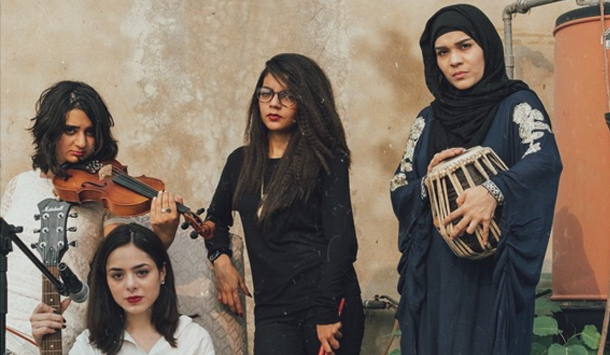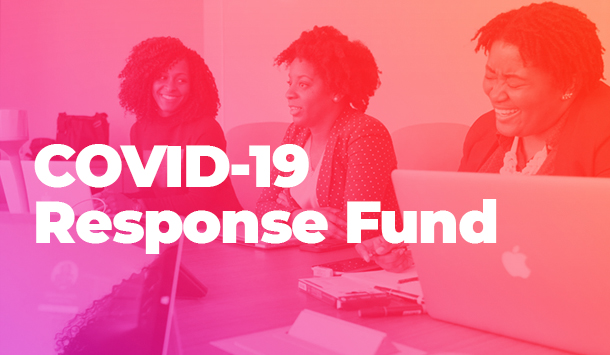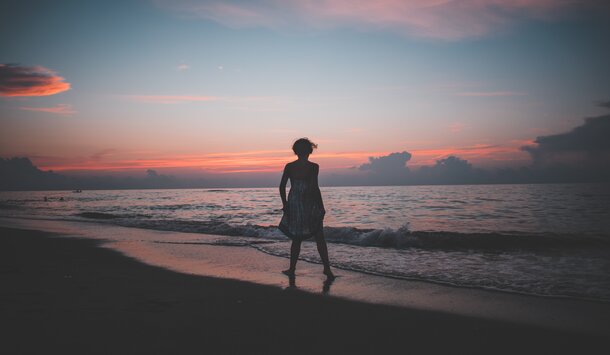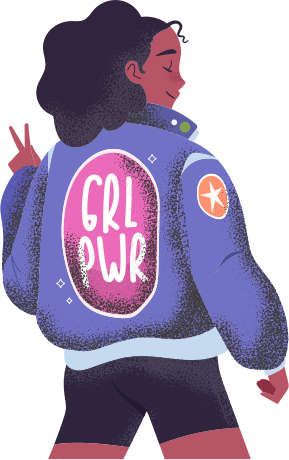After first hearing their ‘Laree Choote’ and ‘Are You With Me’ mashup, I knew I had to interview The All Girl Band. I was in awe at how smoothly the girls’ voices and instruments gelled together. The sound was ethereal. The Pakistani rock song and the Belgian artist’s hit merged together seamlessly; almost symbolic of the gentle fusion of two seemingly incompatible worlds.
It wasn’t just their impeccable talent that caught my attention; I knew that these incredibly talented Pakistani women defying cultural norms had a story to tell.
Meet Anna Salman Dar (lead vocalist and rhythm guitarist) Amal Nadeem (violinist) Mishal Faheem (drummer and percussionist) and Sumaira Waris (tabla player) – four women in their 20’s, navigating their way through life whilst living their dreams.
1) Did you always want to be in a band? When and how did you realise?
For all of us, I think the time we realized the need for a band consisting only of girls, was during Nescafe Basement’s Season 4 cover of ‘Love Me Again’. Zulfi Bhai introduced the concept of an all-female group which is highly uncommon in Pakistan. The amount of love and support we received made us realize the impact this could have on our society; to lead and inspire women in all walks of life to know that they have someone looking out for them at all times. From that moment onwards we knew there was no turning back.
2) Did you study/work in another field before doing this? If so, in what? What do you think you’d be doing if you weren’t musicians?
Anna Salman Dar: From the very beginning, I knew that music was what I wanted to do and didn’t really set my mind toward any other field. However, I always had a keen interest in Psychology and Film-making. If I wasn’t a musician, I would have definitely been working towards being a director. Amal Nadeem: I graduated in 2018 from LUMS with a degree in Economics, looking to go into Education Policy. I then worked at an education start up, and then at WWF. I’ve realized that music and education are two things I am really passionate about, and for me, they complement each other well, each fuelling energy towards the other. I plan to do both in the future as well.
Mishal: I am currently working as a client servicing agent and had I not pursued my passion for music, I would have continued down this career path and developed more professionally.
Sumera: For as long as I can remember, I have never seen myself as anything other than a musician. Playing the tabla is an inherent part of who I am, and I try to share my passion by privately teaching the fulfilling art of playing the tabla to whomsoever is interested.
3) Were you ever worried about ‘log kya kehenge?’ (what will the people say?)
With the kind of restrictive social setting we have grown up in, obviously this is something that we do take into consideration. We usually try to deter stigma creation by being careful of the way we dress and the kinds of songs we choose to sing. Otherwise, we’re very proud to be an all-girl band and hope to encourage younger generations (especially girls) to rise above all the difficulties we face as women living in a conservative society.
4) Did you receive any backlash for pursuing your dreams as musicians? What kind of negative remarks did you receive?
Response and feedback cannot always be positive, but we take that as constructive criticism and try to please everyone the best we can. There are always people who try and keep you down but we try not to take negative comments personally and work on constantly improving ourselves. Everyone is entitled to their own opinion, including us. The best way to deal with backlash is to keep moving forward.
5) Conversely, have you received a lot of support?
Support is the secret that helps us in dealing with common problems we face as musicians. Our fans are amazing people who expect us to perform as best as we can. These high expectations and unconditional love are really encouraging, especially when we’re performing in front of a crowd. Songs from our set list are requested and as people sing and dance along, it reenergises our performance on stage and brings a smile to our faces. We would like to thank each and every one of you who has supported us through this epic journey.
6) How did your families react to this? Were they supportive? Are they supportive now?
For women in our country, pursuing a career in the music industry is not the most viable option to choose as a lifelong career path. Our families are supportive and always have our best interest at heart, but initially we did have to convince our families to let us join the industry as musicians and it was a bit tough, but they also saw this as a worthwhile and successful endeavour and still continue to have our back in every way possible. Obviously, it gets difficult for them sometimes as being in a band requires a lot of our time jamming and travelling for shows across the county, but we’re glad to have families that are not just supportive but also understanding of the responsibilities and time that we all dedicate for the sake of music.
7) Did you lose any friends in the process of becoming musicians?
In the beginning, the group itself comprised of more members, unfortunately it came down to the four of us. Being a musician, we understand that this is a complete commitment where your life revolves around your career. Other than that, ups and downs are always a part of life, so naturally we’ve had differences in opinions but we manage to make it through at the end of the day.
8) Your ‘Laree Choote’ and ‘Are You With Me’ mashup was a beautiful combination of two very distinctive songs. What inspired this?
We had been performing both of those songs on our shows. ‘Laree Chootee’ became a part of our set list as our mentor on Nescafe Basement, who also brought us together, sung it. ‘Are You With Me’ was a collective decision, and we chose to perform it as it was the band’s favourite. So, when we sat down to create a mashup, we played around with a couple of ideas but these two songs seemed to mesh well together at the end and the decision was clear.
9) You’re in a very unconventional field of work. How difficult was it to get to where you are?
As with all good things in life, getting where we are today was not exactly an easy feat to accomplish. Overcoming personal fears and hesitations, figuring out how the industry works, struggling to make a name for ourselves, competing with other commendable artists, breaking through pre-existing stereotypes and getting a strong foothold required persistent and continuous dedication.
10) What would you advise to young women who wish to pursue their goals – but are afraid to do so due to cultural taboos?
We’d tell them; “it’s okay to be scared, it’s okay to hesitate” and “it’s okay to not know what you want in life.” Cultural taboos have pervaded since the beginning of time, but that hasn’t stopped anybody from chasing their dreams. All it takes is a little bit of passion, a little bit of courage and knowing that women all around the world are supporting your endeavours to kick-start your dreams.
—
Arub Syed is a law with Spanish law and LLM graduate. She is also a freelance journalist with a strong drive for social change.
Twitter – a_blueee
Instagram – a_blueday
Photography: Izzah Shaheen



